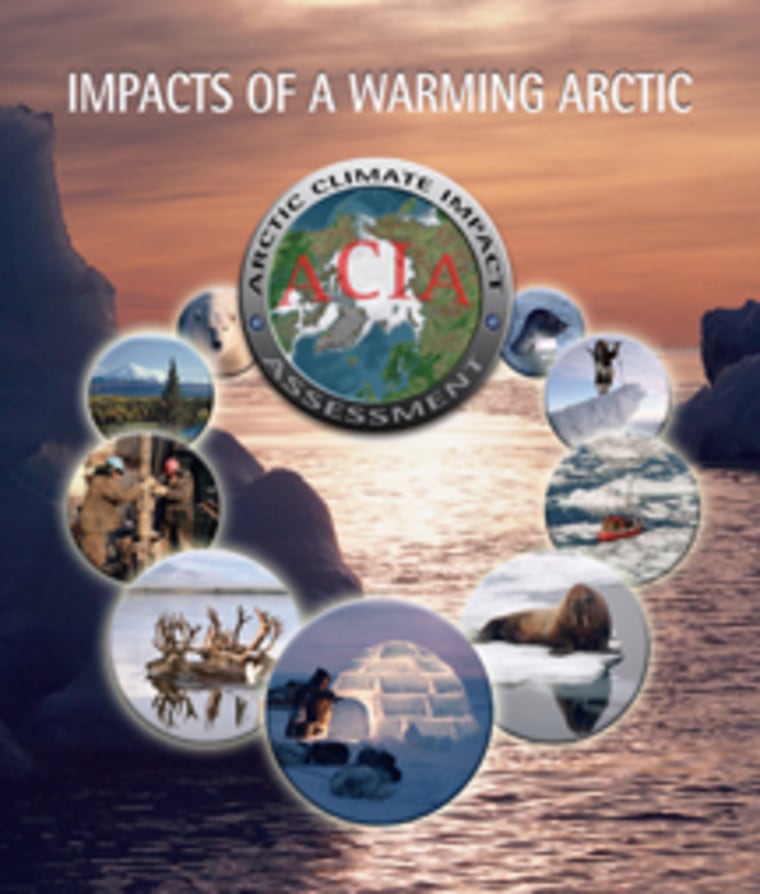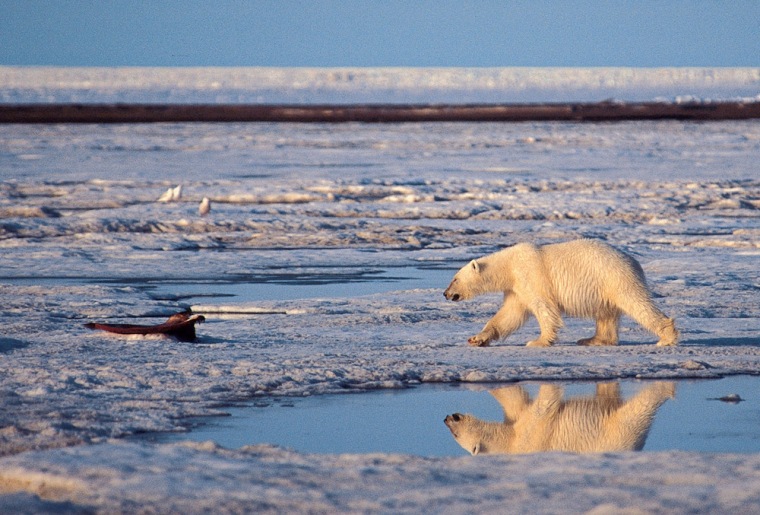Deepening a rift over global warming policy, some European partners are accusing the Bush administration of trying to weaken a report that warns the Arctic is warming almost twice as fast as the rest of the planet.
President Bush has made clear he opposes mandatory curbs on gases like carbon dioxide, which create a greenhouse effect on Earth. Many scientists fear fossil fuel sources of CO2 and other gases are warming the Earth beyond the natural greenhouse effect.
Bush also pulled out of the U.N.’s 1997 protocol on global warming, arguing it was too expensive and exempted China, India and other rapidly developing nations.
Most other industrial nations, most recently Russia, have agreed to Kyoto’s target of cutting developed nations’ CO2 emissions by five percent below 1990 levels by 2008-12.
'Sidetrack' strategy?
The upcoming report is the work of the Arctic Council, a group made up of the United States, Russia, Canada, Denmark, Norway, Sweden, Finland and Iceland.
Ministers from the group are now working on recommendations ahead of a meeting of foreign ministers in Iceland on Nov. 24.
One European negotiator said the administration is trying to "sidetrack the whole process so it is not confronted with the question, 'Do you believe in climate change, or don't you?'"
A European diplomat added that “U.S. negotiators say ’we already have a policy on global warming — we can’t have a new one just for the Arctic’.”
The negotiator added that while the other member nations will try to press the United States on the matter in the final talks, "I cannot see any solution to this unless (the Bush administration) clearly changes its position."
Parts of the report have been leaked in recent weeks, and the scientific overview, titled "Impacts of a Warming Arctic," is to be formally released Monday.
Scientists have agreed to discuss parts of the report ahead of full publication. And some European governments originally wanted the report issued before Tuesday’s U.S. presidential election.
U.S. objection to wording
The Washington Post reported Thursday that the Bush administration has lobbied to drop a policy section stating that in order to meet climate goals set in 1992, the "Arctic Council urges the member states to individually and when appropriate, jointly, adopt climate change strategies across relevant sectors. These strategies should aim at the reduction of the emission of greenhouse gases."

A senior State Department official who asked not to be identified told the Post that "we're bound by the administration's position. We're not going to make global climate policy at the Arctic Council."
Environmental groups have urged the council to crack down.
“The big melt has begun,” Jennifer Morgan, director of the World Wildlife Fund’s global climate change campaign, said in a statement. She said industrialized nations were using the Arctic as a guinea pig in an uncontrolled experiment on climate change.
What's in the overview
The scientific overview, prepared by a team of 300 scientists from member nations, projects that temperatures in the Arctic will rise by 8 to 14 degrees Fahrenheit in the next 100 years. If temperatures then stayed stable, the Greenland icecap would melt altogether in 1,000 years and raise global sea levels by about 23 feet.
“We are taking a risk with the global climate,” said Paal Prestrud, vice-chair of the Arctic Climate Impact Assessment, which was tasked with writing the report.
The icecap has shrunk by 15-20 percent in the past 30 years and the contraction is likely to accelerate, Prestrud said. The Arctic Ocean could be almost ice-free in summer by the end of the century.
Inuit hunters are falling through ice, the overview states, permafrost is thawing and destabilizing foundations of buildings and vital winter roads while the habitat of creatures from polar bears to seals is literally melting away.
The overview does acknowledge that the thaw will have some positive side-effects. Oil and gas deposits will be easier to reach, more farming may be possible and shortcut trans-Arctic shipping lanes may open.
